第34章 CHAPTER XIII(1)
VIENNA in the early part of the last century was looked upon as the gayest capital in Europe. Even the frightful convulsion it had passed through only checked for a while its chronic pursuit of pleasure. The cynical philosopher might be tempted to contrast this not infrequent accessory of paternal rule with the purity and contentment so fondly expected from a democracy - or shall we say a demagoguey?
The cherished hopes of the so-called patriots had been crushed; and many were the worse for the struggle. But the majority naturally subsided into their customary vocations - beer-drinking, pipe-smoking, music, dancing, and play-going.
The Vienna of 1848 was the Vienna described by Madame de Stael in 1810: 'Dans ce pays, l'on traite les plaisirs comme les devoirs. . . . Vous verrez des hommes et des femmes executer gravement, l'un vis-a-vis de l'autre, les pas d'un menuet dont ils sont impose l'amusement, . . . comme s'il [the couple] dansait pour l'acquit de sa conscience.'
Every theatre and place of amusement was soon re-opened.
There was an excellent opera; Strauss - the original - presided over weekly balls and concerts. For my part, being extremely fond of music, I worked industriously at the violin, also at German. My German master, Herr Mauthner by name, was a little hump-backed Jew, who seemed to know every man and woman (especially woman) worth knowing in Vienna.
Through him I made the acquaintance of several families of the middle class, - amongst them that of a veteran musician who had been Beethoven's favourite flute-player. As my veneration for Beethoven was unbounded, I listened with awe to every trifling incident relating to the great master. I fear the conviction left on my mind was that my idol, though transcendent amongst musicians, was a bear amongst men.
Pride (according to his ancient associate) was his strong point. This he vindicated by excessive rudeness to everyone whose social position was above his own. Even those that did him a good turn were suspected of patronising. Condescension was a prerogative confined to himself. In this respect, to be sure, there was nothing singular.
At the house of the old flutist we played family quartets, - he, the father, taking the first violin part on his flute, I the second, the son the 'cello, and his daughter the piano.
It was an atmosphere of music that we all inhaled; and my happiness on these occasions would have been unalloyed, had not the young lady - a damsel of six-and-forty - insisted on poisoning me (out of compliment to my English tastes) with a bitter decoction she was pleased to call tea. This delicate attention, I must say, proved an effectual souvenir till we met again - I dreaded it.
Now and then I dined at the Embassy. One night I met there Prince Paul Esterhazy, so distinguished by his diamonds when Austrian Ambassador at the coronation of Queen Victoria. He talked to me of the Holkham sheep-shearing gatherings, at which from 200 to 300 guests sat down to dinner every day, including crowned heads, and celebrities from both sides of the Atlantic. He had twice assisted at these in my father's time. He also spoke of the shooting; and promised, if I would visit him in Hungary, he would show me as good sport as had ever seen in Norfolk. He invited Mr. Magenis - the Secretary of Legation - to accompany me.
The following week we two hired a BRITZCKA, and posted to Eisenstadt. The lordly grandeur of this last of the feudal princes manifested itself soon after we crossed the Hungarian frontier. The first sign of it was the livery and badge worn by the postillions. Posting houses, horses and roads, were all the property of His Transparency.
Eisenstadt itself, though not his principal seat, is a large palace - three sides of a triangle. One wing is the residence, that opposite the barrack, (he had his own troops,) and the connecting base part museum and part concert-hall. This last was sanctified by the spirit of Joseph Haydn, for so many years Kapellmeister to the Esterhazy family. The conductor's stand and his spinet remained intact. Even the stools and desks in the orchestra (so the Prince assured me) were ancient. The very dust was sacred. Sitting alone in the dim space, one could fancy the great little man still there, in his snuff-coloured coat and ruffles, half buried (as on state occasions) in his 'ALLONGE